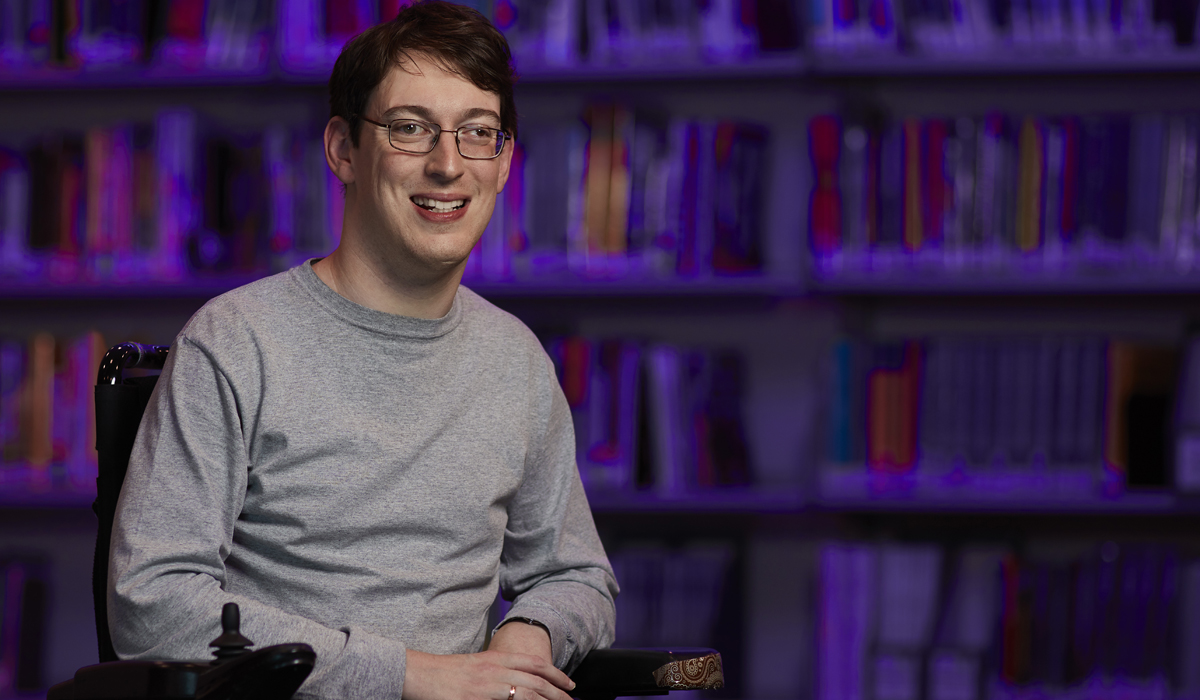How employing people with disability benefits the workplace
 Daniel Giddens, Liaison Librarian at William Angliss Institute.
Daniel Giddens, Liaison Librarian at William Angliss Institute.
“Daniel’s been popular amongst the teaching staff, and having him here is breaking down some of the stereotypes of what people with disability can and can’t do,” says Paul Kloppenborg, Manager, Learning and Information Services at William Angliss Institute.
He employed Daniel Giddens as a Liaison Librarian in 2016. That means Daniel is the connection between the teaching departments at the Institute and the library, and requires him to complete a vast variety of tasks—from ordering new items for the collection, to preparing classes on how to use the catalogue or reference properly, to more in-depth research enquiries and one-to-one consultations.
Daniel has Cerebral Palsy, which mainly affects his lower limbs and partially his hands. He needs aids (including a wheelchair and frame) for his mobility.
To accommodate his work, Daniel had a height-adjustable desk put in. These kinds of workplace adjustments are simple, but mean Daniel is able to complete his work with ease.
But for Paul, hiring Daniel wasn’t about him having disability or not—it was about his ability.
“Daniel’s disability has had no impact at all on his capabilities as a librarian,” says Paul.
“I’ve worked in disability services before, so I think I was more open to the idea than many others would be. But with Daniel, it wasn’t really about his disability. He was initially working here just a couple of hours a week, but I was so impressed that I’ve now got him in four days a week.”
Considering a person with disability may lead you to the best person for the job, while also providing that person with the many personal, social and financial benefits of work.
For Daniel, it’s important that the 20% of Australians living with disability are represented in our organisations.
“People with disability are not a small part of our population. They should be present in organisations just like others are,” says Daniel.
For him, services like JobAccess are important and should be supported because of the confidence and support they give people with disability.
“These services allow people with disability to make contributions to society just like anyone else. I think that’s what most people with disability want to do—contribute. That’s how I feel anyway,” says Daniel.
But according to Paul, working hasn’t just been a benefit to Daniel.
“It’s been great for everyone. Disability can mean so many things. I think it’s important for employers to keep an open mind and realise that having a disability can sometimes have no impact on someone’s ability to work at all.”
Last updated:
